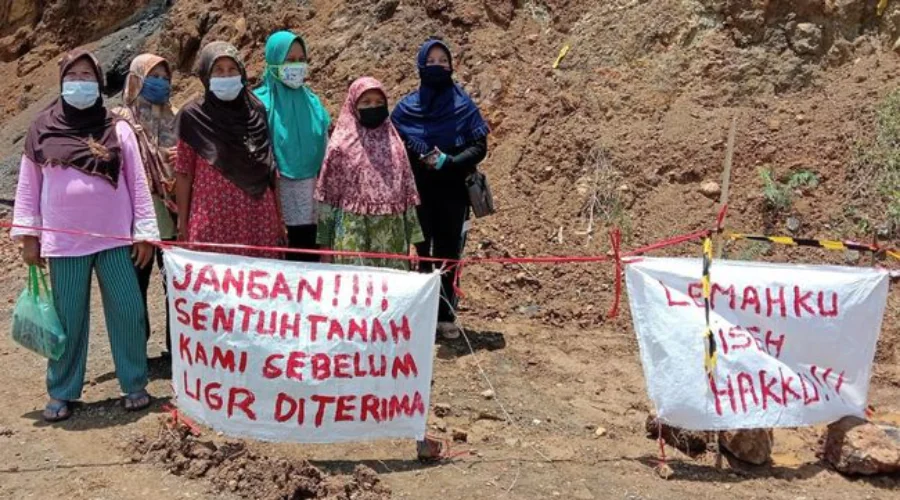
- 12 Feb
- 2022
Ilustrasi gambar Detikcom/Rinto Heksantoro
Wadas Case: UM Surabaya Legal Expert Reveals Ecological Politics
The issue of residents' resistance to the government's development plans has resurfaced. The case of the rejection of the construction of the Beres Dam in Wadas Village, Purworejo Regency, Central Java is one of the many realities that there is ecological politics there.
Achmad Hariri, a legal expert and lecturer at the Faculty of Law (FH), explained that this problem started with the Central Java Governor's Decree Number 590/20/2021 concerning the renewal of the location determination for land acquisition for the Wonosobo Dam.
"There are two ongoing projects in Wadas Village, the first is the construction of a reservoir and the mining of andesite stones. Regarding the construction of the reservoir, it is one of the National Strategic Project (PSN) clusters as stipulated in Article 10 of Law Number 2 of 2012 concerning land acquisition and as amended in Article 123 (2) of Law 11 of 2020 regarding work creation and Article 2 Article 2 PP 19 of 2021 concerning the implementation of land acquisition for development in the public interest," said Hariri.
Hariri emphasized that the Constitutional Court's decision number 91/PUU-XVIII/2020 in his order ordered the suspension of all strategic and broad-based policy actions. This means that the construction of dams, which is included in the work creation law and PP 19 of 2021, should be stopped.
"Regarding the mining of andesite stone which will be used as material for the construction of the reservoir in Wadas Village, there should be a Mining Business Permit (IUP). Mining activities are not justified if there is no IUP including mining in Wadas Village," added Hariri Friday (11/2/22)
Furthermore, he added, if examined from the legal politics of regulation regarding the management of natural resources in Indonesia, it indeed leads to an anthropocentrism paradigm rather than eco-centrism, only concerned with the interests of development without caring for the environment.
“Permits related to exploitation of natural resources should be tightened, not made easier like the current regulations. A development paradigm like this will often cause problems. Do not let natural resources become the cause of disaster. There are so many cases similar to Wadas Village, how can people's objections not be heard because there is a very sharp power relationship," he concluded.










(0) Comments